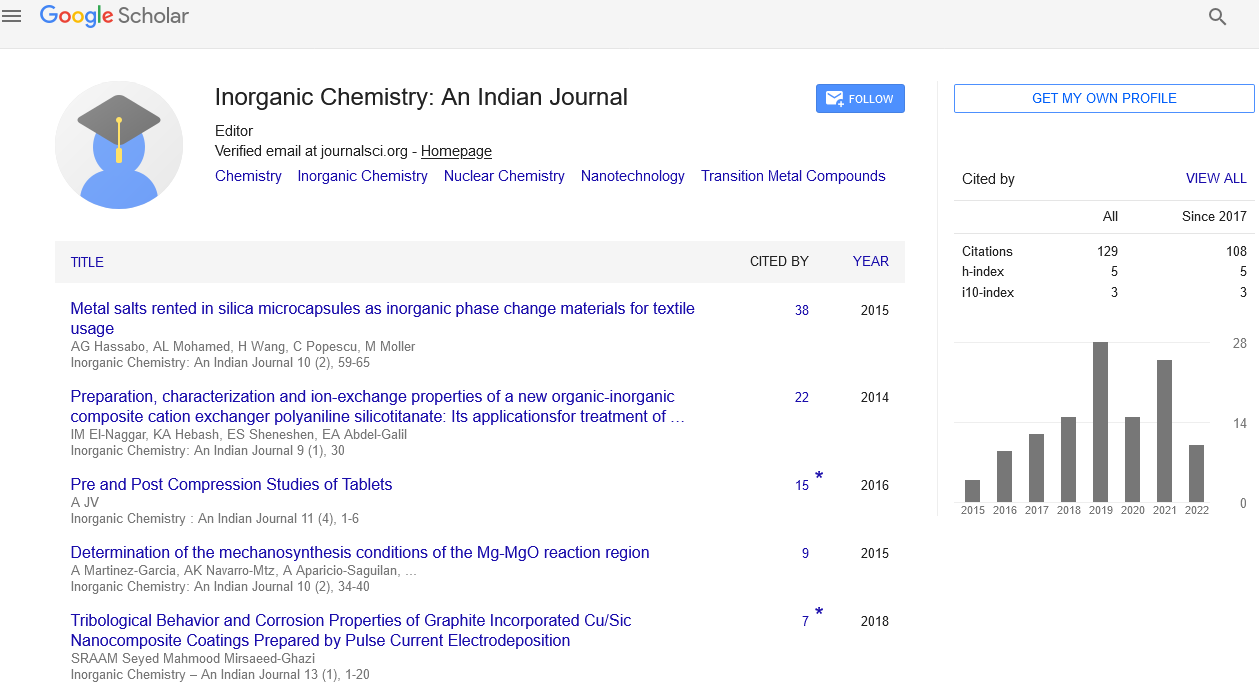Short communication
, Volume: 16( 4)Method to Probe Glass Transition Temperatures of Polymer Thin Films
- *Correspondence:
- Bolin Li
North University Avenue, Southeast University, USA, China
E-mail: lbl@seu.edu.cn
Abstract
A new methodology was developed to probe glass transition temperatures (Tgs) of polymer thin films supported on gold substrates and confined between two solid (silica and silver) surfaces based on the surface plasmon polariton (SFPP) signals generated by sum frequency generation (SFG) spectroscopy. The detected abrupt change of the temperature-dependent SFPP signal demonstrated the viability of this methodology to determine Tags of polymer thin films. The measured Tgs for polymer (poly(methyl methacrylate), poly(benzyl methacrylate) and poly(ethyl methacrylate)) thin films supported on gold (Au) substrates showed similar thickness-dependent trend compared to those previously measured using other methods, i.e., the Tg decreased as the thin film thickness decreased due to the free surface effect. However, the measured Tg of the polymer (poly(methyl methacrylate)) thin films confined between two solid (silica and silver) surfaces increased significantly with respect to the bulk value, indicating the strong interfacial effect on the dynamic behaviours of polymer thin films when the free surface was replaced by a buried interface. This new method to measure Tg is general and can be applied to study many different polymer thin films supported on metal surfaces or confined between two solid surfaces with different surface chemistries. More importantly, SFG has the unique selectivity and sensitivity to study surfaces and interfaces, which provides the feasibility to develop SFG into a powerful tool to detect surface, interfacial and bulk Tgs of a polymer thin film simultaneously in the future.
Biography
Bolin Li has obtained his master degree from Zhejiang Sci-Tech University, and now studying in doctoral program at Southeast University. He has published more than 13 papers in reputed journals.
This work is partly presented at 2nd World Chemistry Conference 2016, August 08-10, 2016

